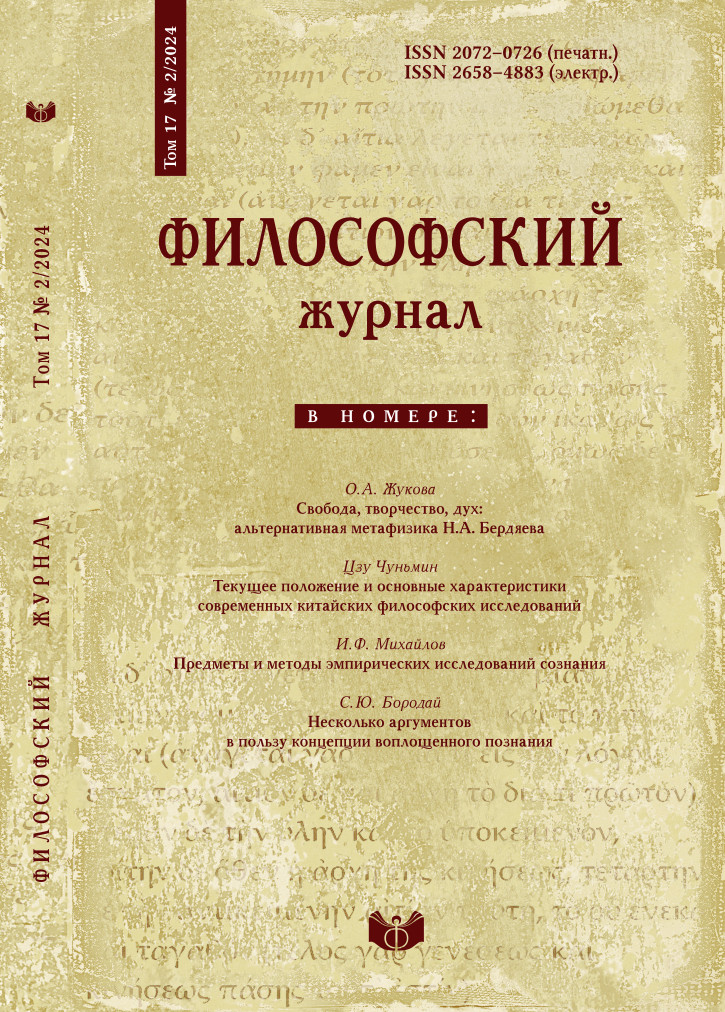Empirical studies and armchair philosophy of consciousness
DOI:
https://doi.org/10.21146/2072-0726-2024-17-2-110-121Keywords:
Igor Mikhailov, Konstantin Anokhin, empirical theories of consciousness, armchair theories of consciousness, folk ontologyAbstract
In this paper I examine the ideas expressed by Igor Mikhailov in his paper “Subjects and Methods of Empirical Theories of Consciousness” and discuss some problems associated with the possibility of non – empirical or non – experimental study of consciousness. While generally agreeing with the conclusions of Mikhailov’s paper regarding his proposals for improving matters in empirical theories of consciousness, namely, that such theories can benefit from the presence in them of a computational level with real modeling potential, with the fact that theses of such theories will have a probabilistic nature, and so on, I dispute some aspects of his interpretations of two contemporary works on criteria of successful empirical theories, in particular his interpretation of the compression criterion, articulated in a recent paper by Konstantin Anokhin, and his interpretation of the Anokhin’s parameter “how”. In the article I also show that one of the key criteria of empirical theories put forward by Igor Mikhailov, namely the criterion of falsifiability, requires careful attention and needs to be clarified, that leads to its transformation into the concept of weak direct verifiability, because otherwise it may turn out that all theses are falsifiable. I claim that speculative theories of consciousness can be defined as theories that contain directly unverifiable propositions. At the same time, I argue that non – experimental theories of consciousness do not have to be speculative. The creators of armchair theories of the right kind can clarify the ontological status of consciousness by conceptual analysis of the fundamental attitudes of human “folk ontology”.






